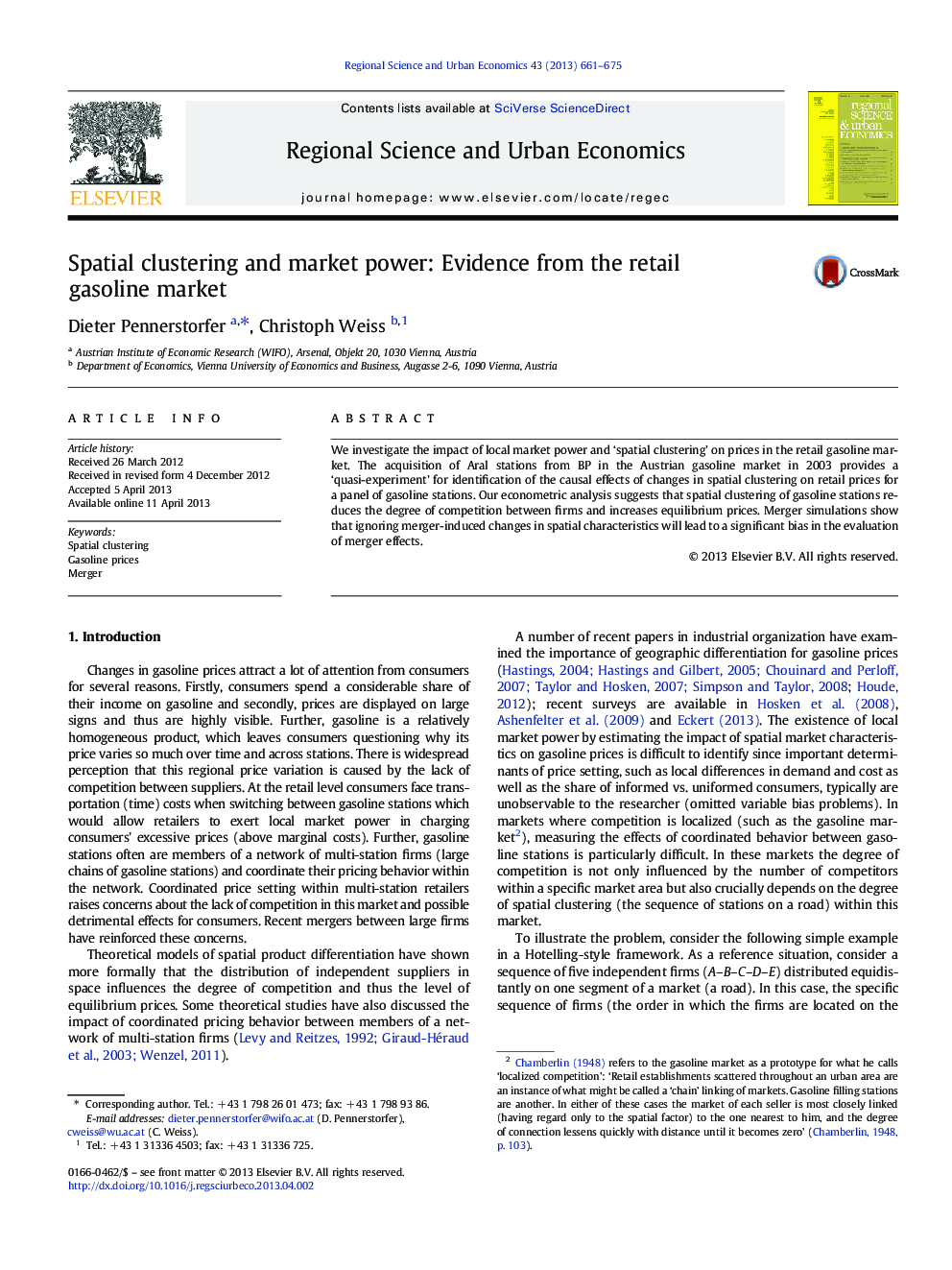| Article ID | Journal | Published Year | Pages | File Type |
|---|---|---|---|---|
| 983370 | Regional Science and Urban Economics | 2013 | 15 Pages |
•We model the impact of ‘spatial clustering’ of outlets for multiproduct firms.•Our measure of ‘spatial clustering’ is based on identity and contiguity of stations.•An actual merger provides a ‘quasi-experiment’ for identification of causal effects.•Retail gasoline prices increase with our measure of ‘spatial clustering’.•Controlling for spatial characteristics is key for the evaluation of merger effects.
We investigate the impact of local market power and ‘spatial clustering’ on prices in the retail gasoline market. The acquisition of Aral stations from BP in the Austrian gasoline market in 2003 provides a ‘quasi-experiment’ for identification of the causal effects of changes in spatial clustering on retail prices for a panel of gasoline stations. Our econometric analysis suggests that spatial clustering of gasoline stations reduces the degree of competition between firms and increases equilibrium prices. Merger simulations show that ignoring merger-induced changes in spatial characteristics will lead to a significant bias in the evaluation of merger effects.
